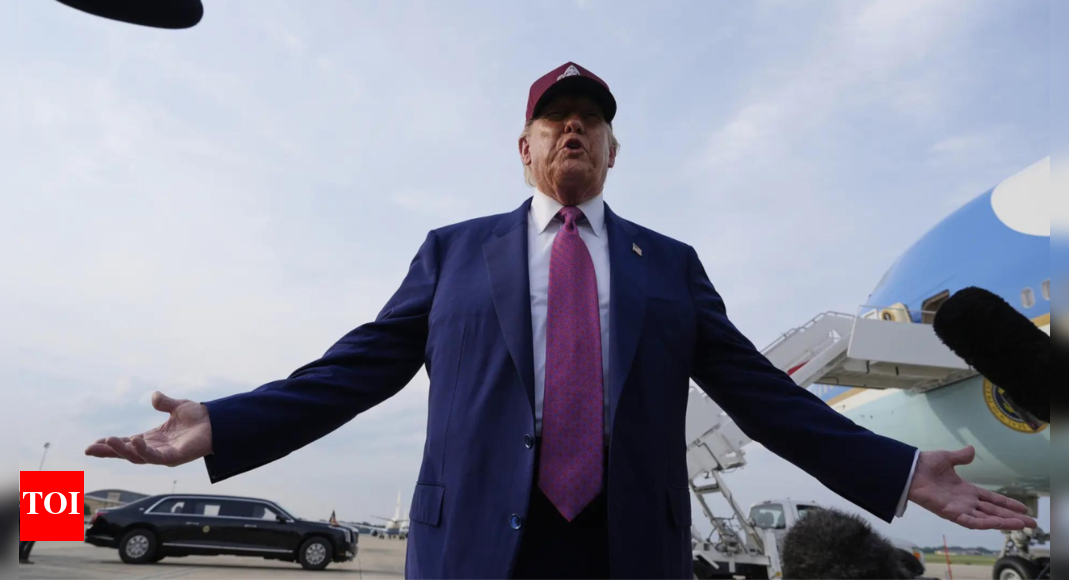US President Donald Trump said the United States will receive magnets and rare earth minerals from China under a new deal, even as tariffs on Chinese goods are set to rise to 55%. The development comes amid renewed scrutiny over supply chains tied to China’s Xinjiang region, where human rights groups allege the use of forced labour.The rare earth announcement and tariff hike followed two days of trade talks in London, where the US and China reached a tentative framework to resume stalled negotiations. The discussions reportedly focused on easing mineral and technology-related disputes that had threatened to unravel a fragile truce reached in Geneva last month, AP reported.The move comes as a new report by Netherlands-based Global Rights Compliance identified 77 Chinese companies in the titanium, lithium, beryllium, and magnesium sectors operating in Xinjiang—many allegedly linked to state-run “labour transfer programs” involving Uyghur and other Turkic minorities.According to the report, these supply chains potentially impact global brands such as Avon, Walmart, Nescafe, Coca-Cola, and Sherwin-Williams, who may source materials like titanium from Xinjiang. These minerals are used in a range of products, from commercial paints and thermos cups to aerospace and auto components.“Mineral mining and processing in Xinjiang rely in part on the state’s forced labour programs for Uyghurs and other Turkic people in the region,” the report stated, urging companies to re-evaluate their sourcing.China’s Foreign Ministry rejected the findings, calling them fabricated. “No one has ever been forcibly transferred in Xinjiang under work programs,” said spokesperson Lin Jian. “The so-called allegation of forced labour is nothing but a lie concocted by certain anti-China forces.”While the companies named in the report have not commented, the issue echoes long-standing concerns. A 2022 UN report said China may have committed crimes against humanity in the region, citing arbitrary detention of over 1 million Uyghurs.Under US law signed in 2021, imports from Xinjiang are blocked unless companies can prove their goods are free of forced labour. Initially targeting solar panels, tomatoes, and textiles, enforcement has since expanded to cover aluminum and seafood.The International Energy Agency recently warned that global critical mineral supply is becoming highly concentrated, with China dominating the refining and processing of lithium, cobalt, graphite, and other key inputs—many of which originate in or pass through Xinjiang.Despite the intensifying scrutiny, Trump’s announcement signals that the US continues to rely on China for essential mineral supplies, even as broader trade tensions escalate.

